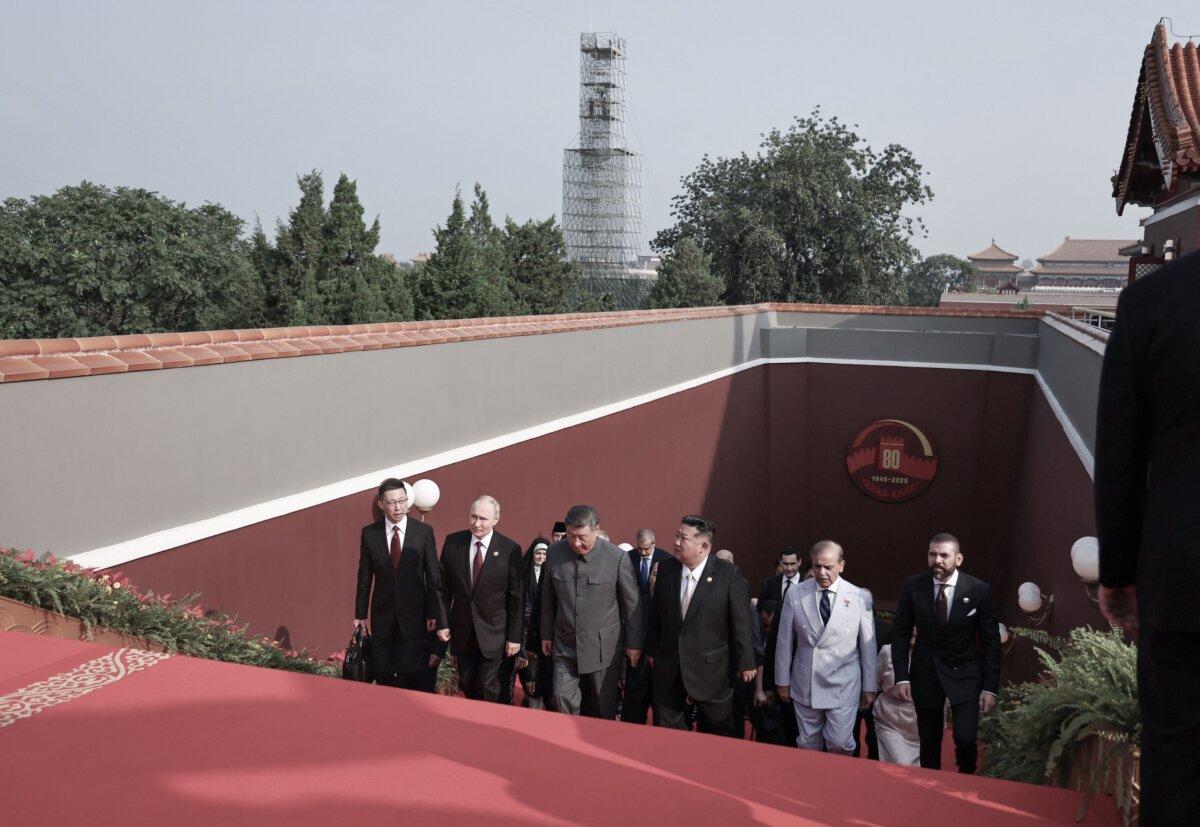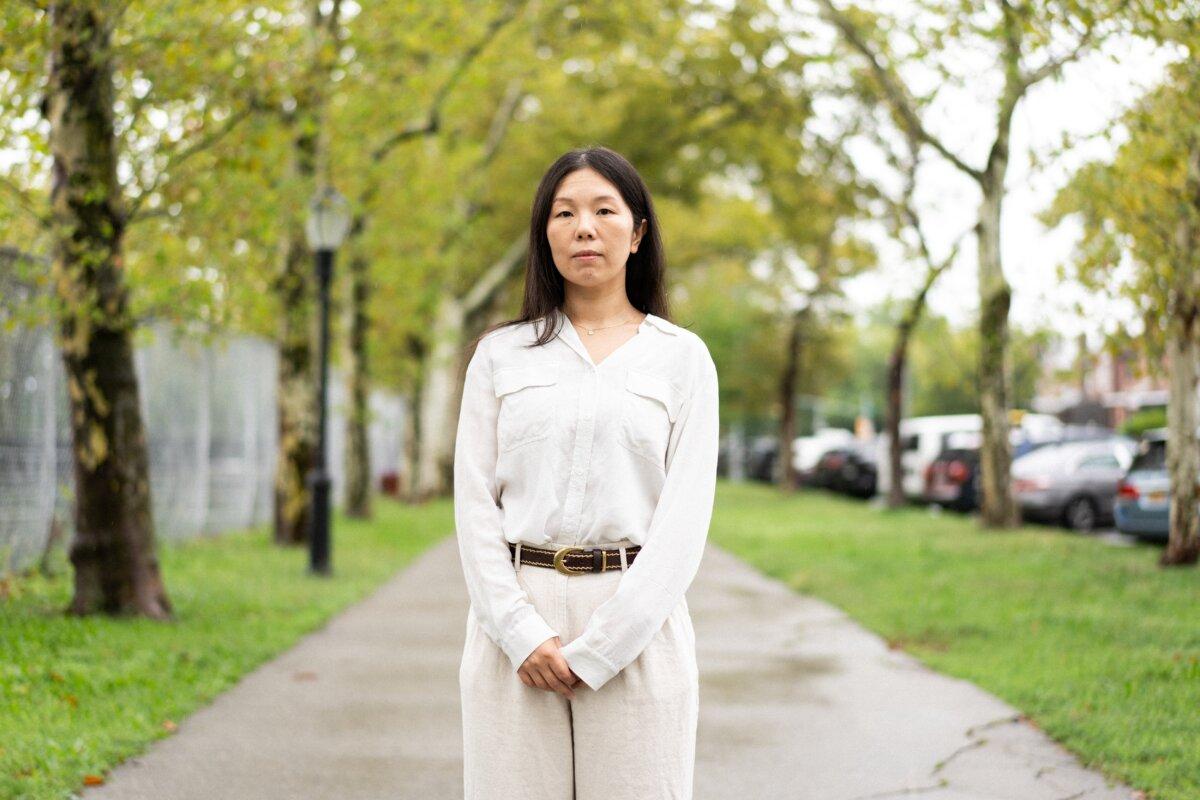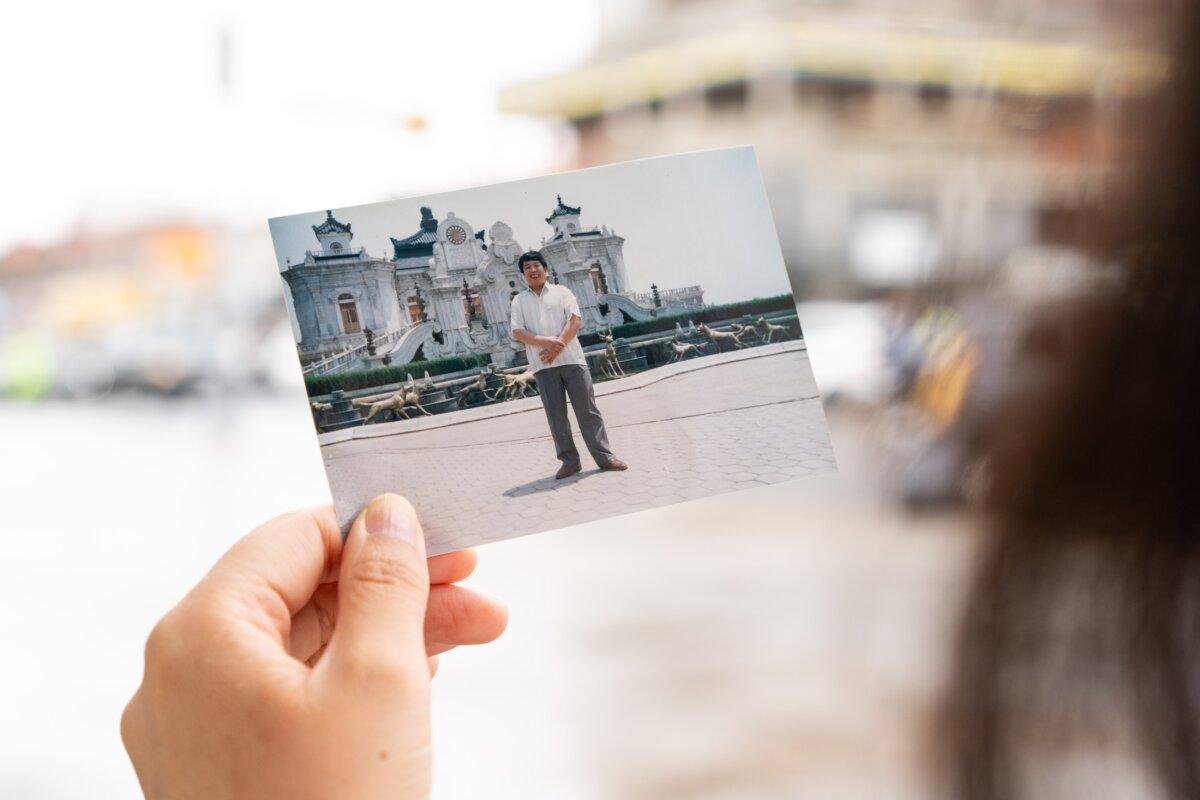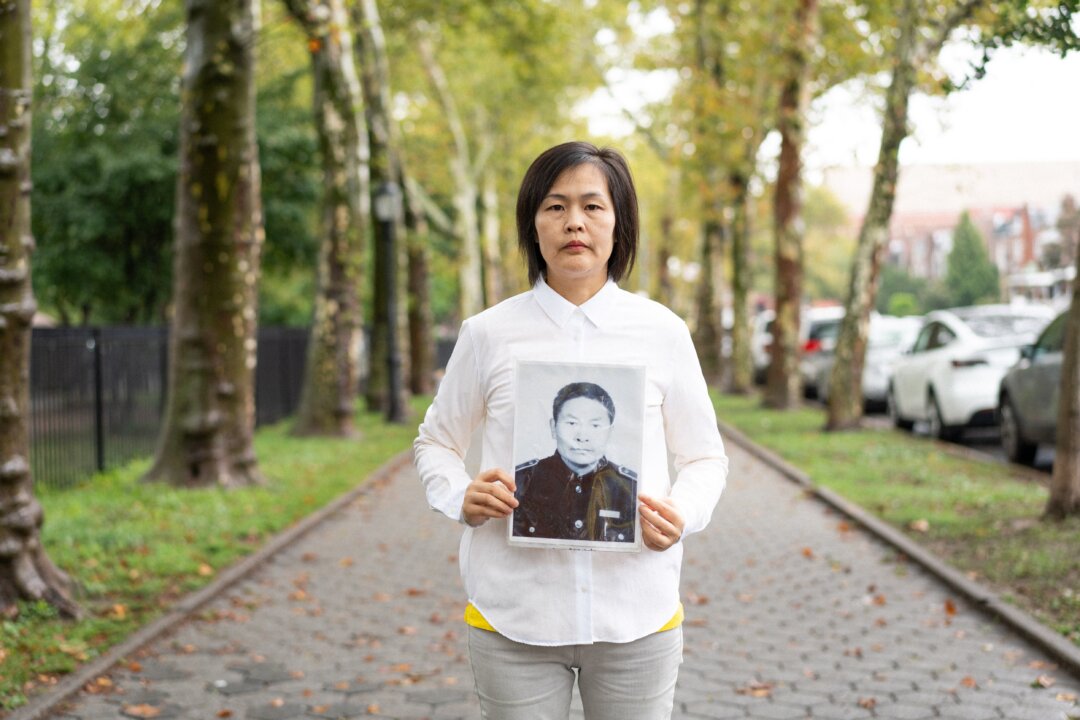Grief and shock hit 19-year-old Han Yu at once as she walked into a room filled with police.
Center in the throngs lay the lifeless body of her father, who had been in perfect health two months before the Chinese authorities threw him into jail.
Even with makeup, traces of suffering were evident. There was tissue missing from under his left eye and bruises around his chin. Black stitches led downward from his throat.
The police yelled and pushed Han out when the teen tried to unbutton her father’s clothes and check how big the incision was.
A few other relatives managed to lift his shirt up and saw that the cut went all the way to the abdomen. They pressed down on his stomach. There were no organs. It was all ice.
What did they do with the organs?
Fast forward 21 years, and the sense of horror recurred when she saw the hot mic moment of Chinese leader Xi Jinping musing with Russian President Vladimir Putin about continual, multiple transplants leading to longevity.
“Earlier, people rarely lived to 70, but these days at 70 you are still a child,” Xi said through a translator in Russian at a massive military parade in Beijing commemorating World War II on Sept. 3.
Putin replied through his interpreter in Mandarin: “As biotechnology advances, human organs can be continuously transplanted, allowing us to become younger and younger, perhaps even achieve immortality.”

“Predictions are that in this century, there’s a chance of living to 150,” Xi said just before the livestream audio faded.
Years have passed since international investigators such as the China Tribunal found the Chinese regime to be engaging in a bloody trade known as forced organ harvesting, killing prisoners of conscience on demand for their organs.
The targets in many cases are people like the Han family—practitioners of Falun Gong, also known as Falun Dafa, a spiritual discipline based on the principles of truthfulness, compassion, and tolerance. With an estimated 70 million to 100 million practicing in China in the 1990s, their faith has been under attack by the communist regime since 1999.
After the authorities stole organs from her father, to hear China’s topmost leader discussing continual organ replacement was shocking and chilling, Han told The Epoch Times. The implication here, she said, was an abundance of organ supply in waiting.
“It makes me wonder: Behind this, how many people like my father would lose their lives?”

‘He’s Alive’
Illicit organ taking was already prevalent in China during the 1990s. With the approbation of Chinese authorities, doctors extracted executed prisoners’ organs for surgery. But the industry expanded dramatically in the following decade, in concert with the launch of a nationwide persecution of Falun Gong.
Rep. Chris Smith (R-N.J.), who has been voicing alarm over the issue since 1998, noted the unusually short waiting time for organs in China that has attracted patients globally. The country, for years, didn’t have an organ donation system, and after one was set up in 2015 under international pressure, researchers have noted signs of manipulation with the Chinese organ donation data.
“You can get an organ in a week, because they go and they kill somebody who matches up with your antigens and everything else, so that there’s no or less likely to be a rejection of the organ,” Smith previously told The Epoch Times. “I’ve never seen anything like it, except in Nazi Germany, and I think that’s what we’re talking about here—it’s Nazi-like.”

Han was one of two women who spoke to The Epoch Times about losing their fathers in the hands of Chinese authorities, with their organs stolen. Their stories bear many similarities: the unexpected death of their loved ones, heavy police involvement, noticeable wounds on the body, quick cremation, and stonewalling when they sought answers.
Jiang Li’s father died in January 2009, less than 24 hours after the family saw him in a rare labor camp visit in the southwestern Chinese municipality of Chongqing. It was about halfway through the 66-year-old’s one-year sentence over his faith, and the man wept in learning the new eight-year term slapped on his wife, the reason she was absent from the meeting.
The guards made them wait for hours before taking the family to the funeral home. There, a mortuary staffer rattled off a set of rules: no phones, cameras, or other communication or photography devices. He said they had five minutes and no more, Jiang wrote in a petition letter—which she sent to Chinese authorities to request redress for her father’s case—shared with The Epoch Times.
Seeing their father’s body pulled out of a morgue freezer, the family rushed close. His face, chest, and legs were warm to the touch.
“My dad isn’t dead. He’s alive!” called out Jiang’s sister.
Panicked, the around two dozen guards and officers there shoved the family out, cutting Jiang’s palm in the process. “The hospital has issued a death certificate,” Jiang recalled one woman saying.
The official explanation, “acute heart attack,” convinced no one in the Jiang family. An autopsy, done without the family’s consent, revealed three broken ribs that the officials claimed had resulted from resuscitation.
One official with the Chongqing Procuratorate told them the father’s organs were turned into medical specimens.
“They took the organs. They can say whatever; how do we know what they did with them?” Jiang told The Epoch Times.
“There are too many questions.”

‘At Their Mercy’
Han’s father died in 2004. For a long time, Han struggled to make sense of her father’s death. She dreamed of him often and cried herself awake.
The Epoch Times broke the news on forced organ harvesting in 2006 based on testimonies from several witnesses. One of them was a woman who worked in a northeastern Chinese hospital where she said her surgeon husband removed corneas from Falun Gong practitioners.
Han knew nothing about it until the following year. She was surfing the internet, and a post describing forced organ harvesting popped up. Her whole body shook as she read. Thinking of her father and the incision on his body, tears began to flow, she recalled.
She sobbed for hours that night until she passed out, she told The Epoch Times.
There was little the families could do in China. Jiang spent six years seeking justice for her father. The only outcome was retaliation from the Chinese regime.
Jiang lost her job. With the family firmly rejecting settlement offers, arrests, beatings, and constant police harassment followed as Jiang petitioned fruitlessly to the top leadership in Beijing.
During a meeting with two lawyers, around two dozen police came, pinning down the lawyers and handcuffing them to the police station, where the officers tortured and interrogated them. One lawyer came out with cuts on his wrists and blood in his eardrum—the result of repeated slapping. Another was locked in a metal cage, his hands fettered up high until they were swollen and numb, lawyers recounted to The Epoch Times.
“It feels like we are at their mercy,” Jiang said. “We can’t control our own lives.”

A Question for the World
The unguarded talks between Xi and Putin captured global attention and again catapulted the organ harvesting issue into the spotlight—apparently to the chagrin of the regime.
The exchange, originally livestreamed through Chinese state media to billions around the globe, has vanished from the heavily censored Chinese internet, with an overseas user of Chinese social media finding that he couldn’t send a message with the word “longevity” through to mainland China.
Through a lawyer, Chinese state broadcaster CCTV retracted Reuters’ access to a clip highlighting the dialogue. It claims the wire agency had used it beyond the agreed-upon scope and “resulted in a clear misrepresentation” of facts.
The suppression of the scene speaks to fear, said Jiang.
“What misrepresentation?” she said. “It’s their own words. And forced organ harvesting is real.”
The conversation—and the international publicity it drove—seems surreal to the two daughters.
Embedded in the remarks, they said, is an indifference to human life and, by extension, the fragility of people living under the Chinese Communist Party’s rule.

But the exposure gave Jiang hope of something else.
“It feels providential,” she said.
For years, she has felt hopeless as one woman up against a political power. But perhaps this is a chance to get the world thinking about forced organ harvesting, she said.
She said if “kind-hearted people” hear the news, “maybe it’s time to take a stand.”
Will they “remain asleep,” or will they “come together to stop it?”
We had a problem loading this article. Please enable javascript or use a different browser. If the issue persists, please visit our help center.

